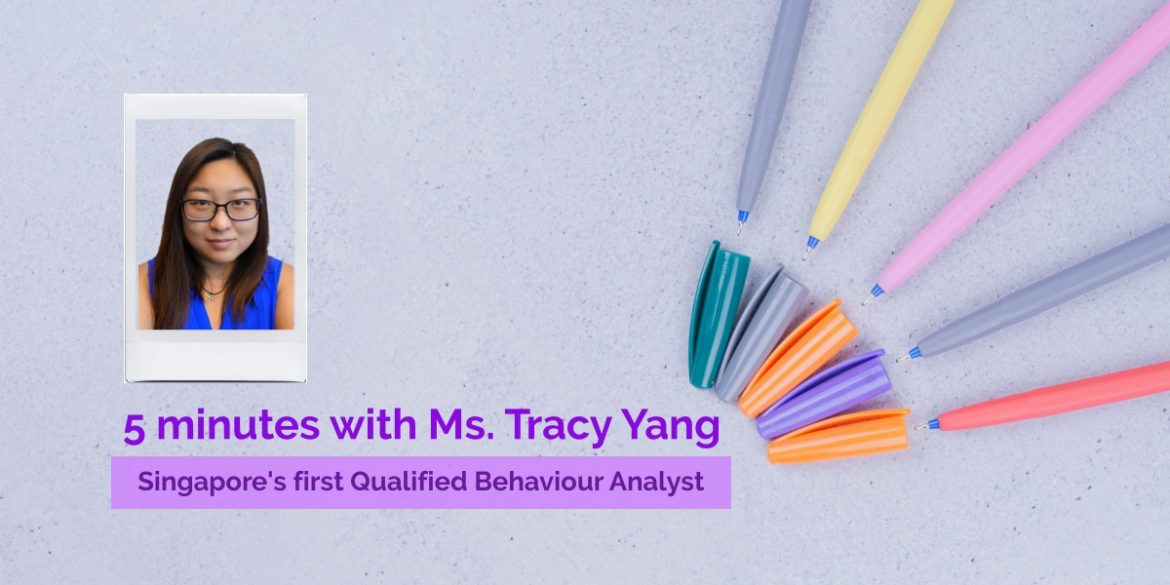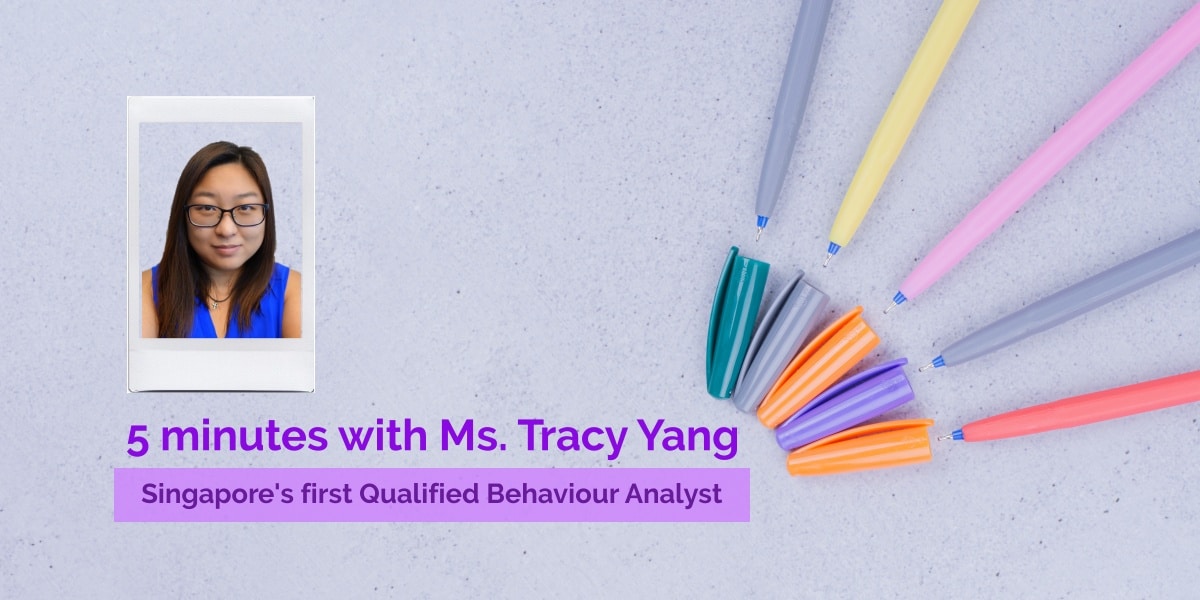
Have you ever found yourself in a situation when you’re shopping with your preschooler in a supermarket and he or she has spied a bar of chocolate or perhaps a candy that you don’t intend to buy? Next, you find yourself with a crying, kicking, screaming, stomping child who refuses to leave his or her spot. A simple supermarket run has turned into a disaster as you find ways to coax your child but to no avail. What then should we do?
We sat down with Ms. Tracy Yang, Mulberry Learning’s in-house behaviour expert, who is also Singapore’s first Qualified Behaviour Analyst (QBA) and a Board Certified Behaviour Analyst (BCBA), to find out how she helps preschool teachers, and in turn parents, deal with emotional meltdowns and atypical behaviours in children.
1. What does a day of work look like to you?
My day of work comprises observing teachers and coming up with different strategies for teachers to better manage atypical behaviors that occur. Currently, in the first half of 2021, I am holding Zoom training sessions to equip our teachers with the knowledge and skills to manage and encourage positive behaviours in children.
2. Why do you think equipping preschool teachers with the skills to manage children’s behaviour is important?
3. How else will you support our teachers?
Other than getting them to understand a little bit more about why children act or react the way they do, I will also “sit in” (via Zoom in this climate of Coronavirus) to observe how teachers manage different situations that occur in their classrooms. Sometimes, when teachers are caught in the situation, it is hard for them to realise what they did that might have led to an outburst or a meltdown from a child and to figure out how they could have prevented or responded to the behaviours then. As a third-party observer, I will be able to pick up more details on what is happening in the classroom and then come together with the teacher to discuss more effective ways to improve their approach of managing the child’s behaviour.
4. Are there other parties involved in managing atypical behaviour in children?
Yes, certainly. Very often, we would involve the child’s parents and check-in to see if the child is also exhibiting similar behaviour at home. At Mulberry Learning, we seek to develop a child holistically hence looking into how a child is behaving at home and working in partnership with parents to implement similar strategies at home and at the Childcare centre would definitely be more effective and helpful to the child.
5. What then can we expect to see in 2021?
We have kickstarted the teacher training programmes on managing children’s behaviour in 2021 as part of the i-Inspire professional development framework to raise the competencies of our preschool teachers. As an introduction to what I do and how I can support them, we have started a 4-part series on helping teachers and principals recognise and understand atypical behaviour in young children. Our staff have been trained to collect specific and objective data on behaviours that occur to understand the reasons behind the behaviours, leading to a more targeted approach to help teachers manage and address these behaviours. Should they still have difficulty managing the situation, I will head down to the centres to observe the situation and guide the teacher on utilising a more customised strategy. For instance, for children who are too young to talk, our teachers are equipped to help these young children pick up gestures to communicate with their peers, teachers, parents and caregivers.
I hope that we can benefit the teachers through supporting them in caring for children and consequently help children manage their behaviours and find better ways to express themselves.
Temper tantrums and emotional outbursts are part and parcel of a child’s development. If we can help children find better ways to express themselves and communicate with us, then perhaps they can better convey their thoughts and express their feelings to avoid meltdowns.
About Ms. Tracy Yang
Ms. Tracy Yang holds a Master in Science in Applied Behaviour Analysis (ABA) and is both a Board Certified Behaviour Analyst (BCBA) and Singapore’s first Qualified Behaviour Analyst (QBA). She has experience working in multidisciplinary settings with psychologists, speech therapists, occupational therapists, physiotherapists alongside teachers and parents to help children cope with their behaviours in a holistic manner. Since 2015, she has worked with children and adolescents with developmental disabilities in United Kingdom, Dubai and Singapore and has provided numerous training sessions to teachers, parents and therapists.
Currently, she is Mulberry Learning’s very own in-house Behaviour Analyst. She supports our early childhood educators in helping them to better manage and care for children, and in turn nurture well-rounded and well-mannered children who are competent explorers, imaginative thinkers, creative problem solvers and in short; future ready children!
Find Out More About Our Award-Winning Programmes
Book a virtual tour with Mulberry Learning to find out how its award-winning curriculum can help prepare your child for his or her Primary years and beyond! Explore our beautifully crafted Reggio-inspired learning spaces from the comfort of your own home with our Virtual School Tours!











